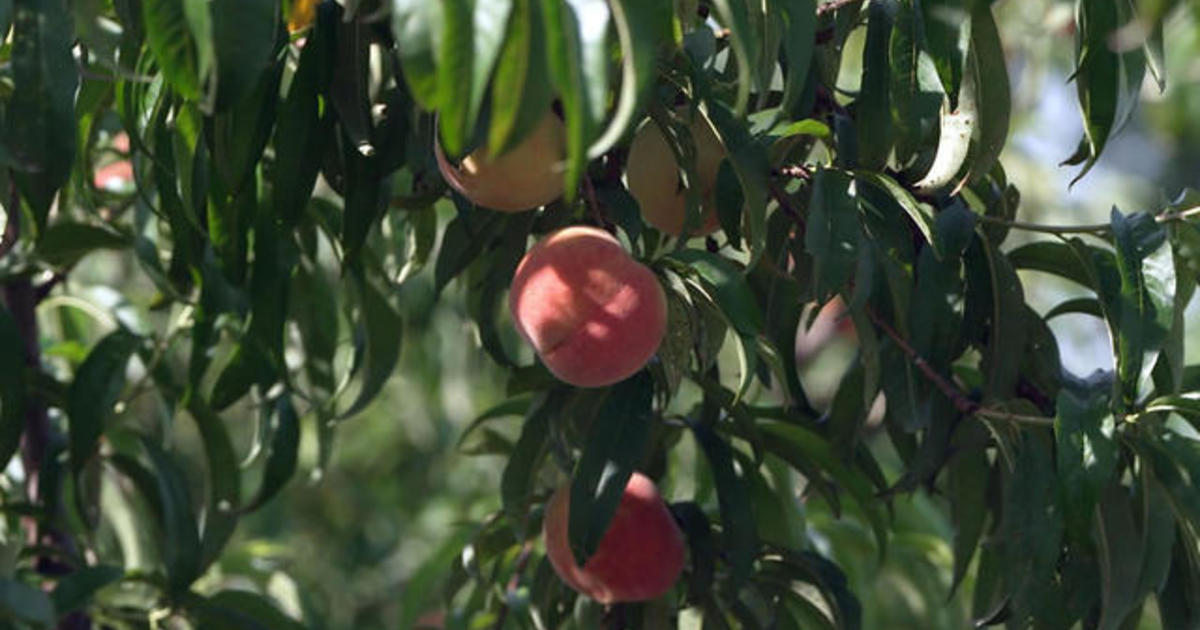Lawton Pearson’s family farm boasts a rich history of peach farming, spanning over a hundred years. However, Pearson laments that this year’s harvest is the worst he has ever seen.
“You always hold onto hope until reality hits you in the face and there’s nothing left,” Pearson expressed with disappointment.
Georgia, famously known as the “Peach State” due to its typically abundant crop, produces over 130 million pounds of peaches annually. Unfortunately, this year has been devastating, with approximately 90% of the state’s crop being lost. As a result, those affected are now desperately seeking solutions.
Pearson, who manages a 1,500-acre peach crop, has experienced an almost complete loss, leaving him and other farmers in despair. The primary culprit behind this blow is a phenomenon known as “chill hours”. Georgia’s prized peaches usually need approximately 850 hours of temperatures below 45 degrees Fahrenheit to blossom. However, due to climate change, this year’s crop only clocked about 700 chill hours.
Pearson expressed concerns that such occurrences may not be isolated instances.
“I hate to admit it, but we’ve been consistently off by 20% since 2016,” he confessed.
However, the repercussions extend beyond the farms themselves. Teresa Breckenridge, owner of Atlanta’s Silver Skillet restaurant, explains how the cost of fresh peaches has tripled, leading the business to switch to canned peaches for their popular peach cobbler.
“Right now, I simply cannot afford fresh peaches, and even if I could, the quality just isn’t there,” Breckenridge shared. Nevertheless, she remains optimistic, stating, “Having a backup plan is crucial when fresh peaches aren’t viable.”
Faced with these challenges, Georgia farmers are actively exploring alternative solutions. At the University of Georgia, Assistant Professor Dario Chavez and his team are diligently working on breeding more resilient peach varieties. Their meticulous selection process involves analyzing slices from different peach varieties, considering factors such as size, color, and, most importantly, taste. However, this breeding process is time-consuming, and Georgia’s shrinking peach farming industry may not have much time left.
Pearson reflects on the current predicament, questioning the viability of the peach farming industry if they can no longer consistently produce flavorful peaches.
“Regardless of how visually appealing or resilient a peach may be, if it doesn’t taste great, it spells the end of my business,” Pearson stated resolutely.
Denial of responsibility! VigourTimes is an automatic aggregator of Global media. In each content, the hyperlink to the primary source is specified. All trademarks belong to their rightful owners, and all materials to their authors. For any complaint, please reach us at – [email protected]. We will take necessary action within 24 hours.



